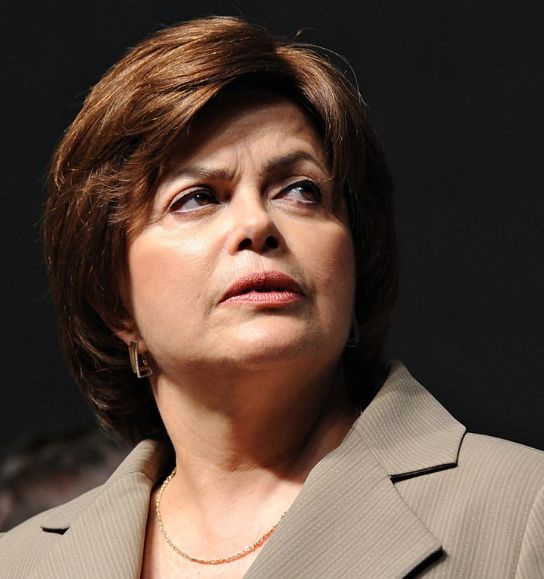The Brazilian stock market, as measured by the MSCI Brazil Total Return Index, is down just under 25% in US dollar terms year-to-date (10 July 2013), with about 10% of that loss being due to weakness in the exchange rate of the Brazilian real versus the dollar. Losses at two large companies in Brazil; energy company Petrobras, and mining company Vale have also contributed significantly. We believe that much of Brazil’s current economic problems stem from domestic economic mis-management and an urgent need for increased incentives for private capital investment. We do not believe that one factor alone, such as lower Chinese growth, falling commodity prices, or changes in Federal Reserve policies are the main sources of blame; after all, Indonesia and Australia also export to China and are exposed to the same global forces, yet their economies and stock markets are generally perceived to be in better shape.
Arguably Brazil’s investment unpopularity stems largely from local and foreign investor mistrust of the Dilma administration and its economic policies.
For example, Brazilian exports to China actually rose to a historic high in May 2013, reaching US$5.6 billion, a 5.6% increase versus the same period last year and up over five times since 2007 (according to Bloomberg). Brazil’s economic relationship with China is actually one of the bright spots in the economy, as China has broadened its mix of goods that it buys from Brazil. Arguably Brazil’s investment unpopularity stems largely from local and foreign investor mistrust of the Dilma administration and its economic policies. The banking, utilities, mining, transport, beverages and energy industries have witnessed increasing government intervention in pricing and taxation, often through manipulation by huge state-owned companies, which have harmed the interests of private stock exchange listed companies. Some industries, such as construction, with close ties to the government have done well, but they are not listed and often rely on large loans from state banks.
The recent street protests in Brazil were a largely middle class expression of much of what local and foreign stock market investors already knew
Corruption has also become more evident in the relationship between the government and key industries. It is unclear whether the present Brazilian government has the will or the discipline to repair the damage it has created – this is the biggest source of potential surprise, both positive and negative, that the Brazilian investment climate faces in the near term. The recent street protests in Brazil were a largely middle class expression of much of what local and foreign stock market investors already knew; that the government was failing to invest its new-found commodity wealth wisely, corruption in Dilma’s previously clean Workers Party was rising quickly, and that big projects, such as World Cup stadiums or Petrobras, did little to address shortages in education and healthcare. Many Brazilians are painfully aware that the government’s huge unproven gamble on Petrobras is directing vast sums of money away from much-needed social investment.
Such a discount can be justified considering the immediate headwinds facing Brazil but offers longer-tem investors a good opportunity to invest in an economy operating well below its potential.
However, over the past decade, investing in Brazil has made sense. The stock market has done very well (MSCI Brazil Total Return Index +538.4% versus MSCI World Total Return Index +112.4% in US dollar terms, between 30 June 2003 and 30 June 2013), Brazilians are much better off, and the country has opened itself up to foreign trade. However, the recent weakness has also pointed out that in emerging markets government policy, good or bad, still has an enormous impact on the economy. Trade is a bright spot for Brazil going into 2014 as exports to the US, Europe, and Japan could accelerate. There are further developments, which could help the Brazilian financial markets in the coming months; first, the decision to raise interest rates should help with inflation expectations and reduce wage inflation in 2014; second, the weaker currency has improved Brazil’s trade competitiveness; third, the government has promised to review its fiscal position and there is some evidence that excessive or wasteful vanity projects will be cut; fourth, the street protests provided a vital wake-up call to a government, which had wrongly believed that President Dilma was universally popular; finally, we believe that Petrobras will begin showing some qualified success in its deep water oil fields – perhaps not as much oil or soon enough for many critics, but enough to ease investors’ deeper concerns. At present levels the Brazilian stock market is trading at a price-to-earnings ratio of 14x, a price-to-book ratio of 1.3x and offers earning growth of about 14% over the next twelve months – however, currency volatility and the outlook for commodity prices often lead to wide ranges in estimates. In historical terms the price-to-earnings ratio in 2008 was about 8.5x and the price-to-book ratio was about 1.6x. Our conclusion is that the market offers relative value on a historical basis but that earnings are at depressed levels. Such a discount can be justified considering the immediate headwinds facing Brazil but offers longer-tem investors a good opportunity to invest in an economy operating well below its potential.
Opinion column by Christopher Palmer, Director of Global Emerging Markets at Henderson Global Investors.


